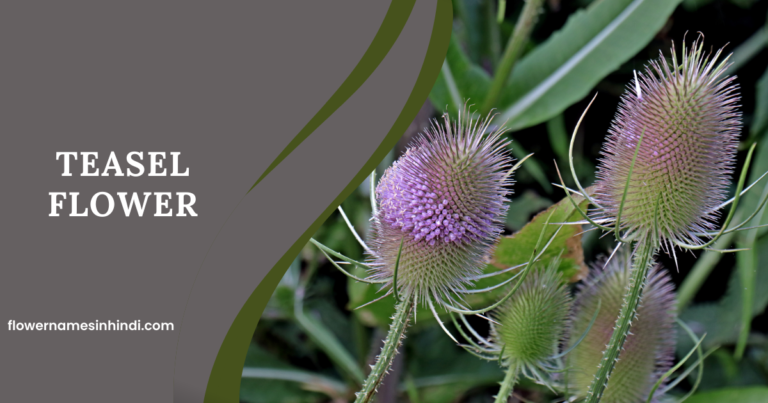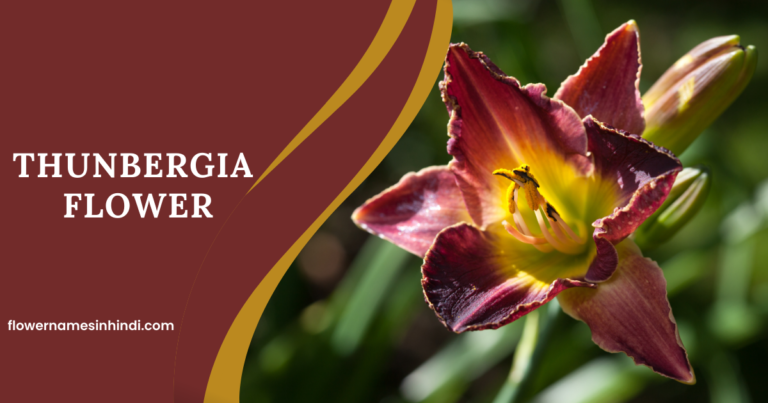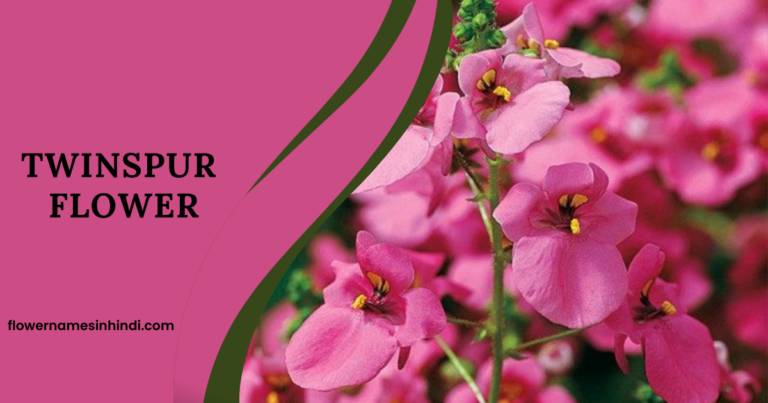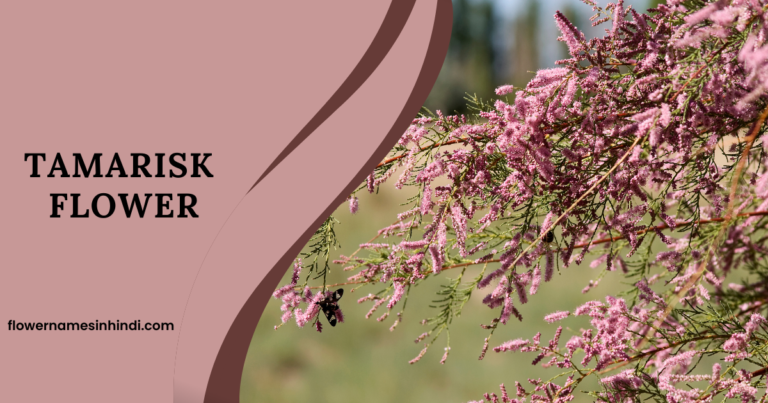🌸 Explore 15+ Flowers That Begin with T With Pictures
I always find it exciting to discover flowers that start with a certain letter. This time, I explored the letter T and found more than 15 stunning flowers. Some grow freely in wild meadows, while others shine in well-kept gardens.
These T flowers come in many shapes, colors, and scents that can inspire any nature lover. Join me on this journey and see how their beauty can brighten up your garden and surroundings.
Here’s a list of flowers starting with the letter T:
🌺 Tulip
🌺 Tiger Lily
🌺 Thistle
🌺 Tuberose
🌺 Trillium
🌺 Trumpet Vine
🌺 Trefoil
🌺 Twinspur
🌺 Tickseed
🌺 Tropaeolum (Nasturtium)
Tithonia

Tithonia, a Mexican flower, belongs to the Asteraceae family. It is a brilliant and striking plant that adds blazing colour to landscapes. Tithonia, with its vivid orange, red, or yellow blossoms that resemble sunflowers, adds warmth and height to their landscapes.
It is simple to cultivate from seeds and takes little upkeep. Regular deadheading of wasted blooms promotes continuing flowering throughout the summer and early autumn.
Tithonia is often used as green manure, its leaves decompose quickly and add rich nutrients to the soil, especially nitrogen.
| Feature | Detail |
| Botanical name | Tithonia rotundifolia |
| No. of species | 2 species |
| Symbol | Cheerfulness, vibrancy, and resilience |
| Blooming time | Mid-summer to early fall |
| Origin/ Native to | Mexico and Central America |
Tulip – Flowers That Begin with T

The term “tulip” is derived from a Persian word for turban. These are spring-blooming perennial geophytes belonging to the Liliaceae family. Their blooms are usually enormous, showy, and vividly coloured, often red, orange, pink, yellow, or white.
Tulip plants may grow 10 to 70 cm (4 to 28 inches) tall, depending on the species. These plants like well-drained soil and full to partial sunlight, so they are easy to cultivate in temperate areas. Gardeners often plant them as bulbs in autumn, allowing them to grow roots before blossoming in spring.
Despite being a Dutch icon, tulips actually originated in Central Asia and were first cultivated in Turkey. During World War II, people in the Netherlands reportedly ate tulip bulbs to survive the famine. Some dishes were even made from them!
| Feature | Detail |
| Botanical name | Tulipa |
| No. of species | About 75 species |
| Symbol | Perfect love, elegance, grace |
| Blooming time | Spring |
| Origin/ Native to | Central Asia |
Trillium

Trillium, commonly known as toadshade, wakerobin, birthwort, tri flower, and sometimes wood lily, is a genus of the family Melanthiaceae. Gardeners grow these perennial herbs from rhizomes. The prominent colours of the flowers are white, pink, red, and yellow.
They are also difficult to grow outside their natural habitat, taking several years to mature from seed to blooming plant. However, Trilliums are a lovely and satisfying addition to shady garden settings in optimum condition.
| Feature | Detail |
| Botanical name | Trillium |
| No. of species | 43 species |
| Symbol | Modesty, beauty, purity |
| Blooming time | Early spring |
| Origin/ Native to | North America and parts of Asia |
Tansy – Flowers That Begin with T

Tansy is a hardy perennial plant distinguished by its clusters of tiny, button-like yellow blooms and feathery, scented leaves. It is an herbaceous plant from the Aster family, Asteraceae. Its common names are bitter buttons, cow bitter, or golden buttons. This plant has a long medicinal history.
The plant brings a bright splash of colour after many other perennials stop blooming. However, you need to handle tansy with care because it has poisonous chemicals that can be harmful if eaten in large amounts.
Ancient Greeks and early Christians used Tansy in burial rituals because of its preservative properties. Its scent and oils helped slow decomposition
| Feature | Detail |
| Botanical name | Tanacetum vulgare |
| No. of species | Approximately 70 species in the Tanacetum genus |
| Symbol | Health, protection, immortality |
| Blooming time | Mid to late summer |
| Origin/ Native to | Europe and Asia |
Teasel

It is a genus of flowering plants in the family Caprifoliaceae. These are also known as teazel, teasel, or teazle. These biennial herbaceous plants grow upto 1–2.5 metres (3.3 — 8.2 ft) tall. The genus name (Dipsacus) comes from the Greek word for thirst (dipsa) and relates to the cup-like shape created when sessile leaves combine at the stem.
You can recognize this species by its towering, spiky flower heads, which may add architectural interest to a landscape. The blossoms are often purple or lavender, attracting bees and other pollinators.
Before modern tools, dried teasel heads were used to “tease” or raise the nap on woolen cloth in the textile industry. No plant has ever been so fashion-forward.
| Feature | Detail |
| Botanical name | Dipsacus |
| No. of species | 15 species |
| Symbol | Resourcefulness, persistence, strength |
| Blooming time | Midsummer to early autumn |
| Origin/ Native to | Europe, North Africa, Western Asia |
Thunbergia – Flowers That Begin with T

The black-eyed Susan vine is another name for Thunbergia. Botanists include this genus in the family Acanthaceae. It is a tropical flower that adds greenery and sophistication to any garden. Thunbergia plants grow quickly, reaching heights of 6-8 feet in a single growing season.
Their funnel-shaped blooms attract pollinators, including bees, butterflies, and hummingbirds. These flowers thrive in full sun to light shade and requires well-drained soil and frequent watering to maintain its lush, strong growth.
| Feature | Detail |
| Botanical name | Thunbergia |
| No. of species | 150 species |
| Symbol | Enthusiasm, connection, joy |
| Blooming time | Late spring to fall |
| Origin/ Native to | Tropical Africa, Asia, and Madagascar |
Tiger Lily

It is a striking perennial plant known for its distinctive, vivid orange flowers with dark spots resembling a tiger’s coat pattern. This genus belongs to the Lilioideae family. The Tiger Lily stands out in gardens due to its towering, upright growth, which may reach heights of 4-6 feet.
This lily loves full sun to partial shade and well-drained soil. It is reasonably easy to cultivate and maintain. Tiger lilies may be focal points in flower beds, mixed borders, or containers.
Tiger Lilies are highly toxic to cats even small ingestions can cause kidney failure. So while they are stunning in gardens and vases, keep them far from feline friends.
| Feature | Detail |
| Botanical name | Lilium lancifolium or Lilium tigrinum |
| No. of species | 117 species in Lilium genus |
| Symbol | Confidence, pride, and elegance |
| Blooming time | Mid to late summer |
| Origin/ Native to | China, Korea, Japan |
Tuberose – Flowers That Begin with T

Tuberose is a highly fragrant, exotic flowering plant of the Asparagaceae family. The common name is derived from the Latin tuberosa, which means bloated or tuberous, about the root structure.
Tuberose plants may reach 3-4 feet tall, with numerous flower spikes arising from a single root. The tubular blooms are packed in dense clusters and open successively from the bottom to the top of the spike.
| Feature | Detail |
| Botanical name | Agave ( Formerly Polianthes) |
| No. of species | 15 species |
| Symbol | Elegance, refinement, and sensuality |
| Blooming time | Late summer to early autumn |
| Origin/ Native to | Mexico |
Tickseed

Tickseed, also called calliopsis, is a bright wildflower known for its cheerful blossoms. It belongs to the Asteraceae family. Most species have golden or yellow flowers, but some may also bloom in red, pink, or orange.
These plants grow between 46 and 120 centimeters (18–47 inches) tall. They are drought-tolerant and easy to care for, which makes them a favorite for gardeners who want strong and reliable plants. The finely divided leaves also add texture to the garden, even when the flowers are not in bloom.
Tickseed (Coreopsis tinctoria) was one of the first flowers grown in space aboard the International Space Station as part of NASA’s plant research experiments.
| Feature | Detail |
| Botanical name | Coreopsis |
| No. of species | Almost 80 species |
| Symbol | Joy, optimism, and abundance |
| Blooming time | Late spring through summer |
| Origin/ Native to | North America |
Twinspur – Flowers That Begin with T

Twinspur, along with other members of its genus, is a charming and versatile flowering plant in the Scrophulariaceae family. It is known for its delicate yet vibrant blooms and climbing or trailing growth habit.
It requires little maintenance and can withstand moderate dryness, while it benefits from frequent watering during dry months. Its trailing or climbing habit makes it perfect for hanging baskets, window boxes, or as a ground cover in garden beds.
| Feature | Detail |
| Botanical name | Diascia |
| No. of species | Approximately 70 species in the Diascia genus |
| Symbol | Grace, charm, and versatility |
| Blooming time | Late spring through summer |
| Origin/ Native to | Southern Africa |
Torenia

Torenia, also called the wishbone flower, is a cheerful annual plant known for its colorful blooms in blue, purple, pink, and white. Because it spreads or trails, it works well in hanging baskets, pots, or as ground cover in shady spots.
This plant is easy to care for and can handle cooler weather, adding beauty to the garden all season long. With regular watering and a little feeding, it keeps blooming brightly. It also attracts bees and butterflies, helping create a lively and healthy garden.
When grown in healthy soil, Torenia plants often form relationships with beneficial mycorrhizal fungi, which help them absorb nutrients especially useful in less-than-perfect soils.
| Feature | Detail |
| Botanical name | Torenia |
| No. of species | Several species within the Torenia genus |
| Symbol | Charm, beauty, and versatility |
| Blooming time | Late spring through early fall |
| Origin/ Native to | Tropical Asia |
Tamarisk – Flowers That Begin with T

Tamarisk grows as a hardy and attractive shrub with fine, feathery leaves and soft pink or white flowers. People also call it salt seed, and it belongs to the Tamaricaceae family. This plant adapts easily to many soils and climates, even dry desert areas.
It grows as an evergreen or deciduous shrub or tree, reaching heights of 1 to 18 meters (3.3 to 59.1 feet) and forming thick clusters. Its tiny, scale-like leaves create a light and airy look, while its small flowers bloom in plume-like bunches.
| Feature | Detail |
| Botanical name | Tamarix |
| No. of species | About 50-60 species within the Tamarix genus |
| Symbol | Grace, resilience, and adaptability |
| Blooming time | Late spring to early summer |
| Origin/ Native to | Mediterranean region, Asia |
Trumpet Vine

Trumpet Vine, also called Trumpet Creeper, belongs to the Bignoniaceae family. Gardeners love it for its bright trumpet-shaped flowers and fast, strong growth. The plant produces large, tube-like blooms in shades of orange, red, or yellow that look like trumpets.
You should trim it often to control its growth and encourage more flowers. It also attracts hummingbirds and butterflies, bringing life and color to any garden. While it can grow in many conditions, it thrives best in sunny spots with well-drained soil.
Some people are sensitive to trumpet vine sap and leaves, they can cause skin irritation or rashes, especially when pruning. So while its lovely, gloves are highly recommended!
| Feature | Detail |
| Botanical name | Campsis radicans |
| No. of species | 2 species |
| Symbol | Boldness, vitality, and beauty |
| Blooming time | Mid-summer to early fall |
| Origin/ Native to | Southeastern United States |
Thimbleweed – Flowers That Begin with T

Thimbleweed is an upright plant with a soft and delicate look that makes gardens more graceful. It belongs to the Ranunculaceae family and is famous for its thimble-shaped seed heads. The plant grows 30–100 cm (12–39 in) tall and produces greenish-white flowers.
Thimbleweed grows best in well-drained soil with full to partial sunlight, but it can also adapt to different soils and moisture levels. It usually reaches 12–18 inches in height and spreads slowly, which makes it perfect for garden borders and wildflower meadows.
| Feature | Detail |
| Botanical name | Anemone cylindrica |
| No. of species | 100 species in Anemone genus |
| Symbol | Grace, elegance, and subtle beauty |
| Blooming time | Late spring to early summer |
| Origin/ Native to | North America |
Thalictrum

Thalictrum, also known as Meadow Rue, is a lovely perennial plant admired for its soft, delicate flowers and graceful leaves. Belonging to the Ranunculaceae family, it adds a light and airy touch to garden spaces.
This plant grows clusters of tiny white, pink, or purple flowers. It usually reaches 2 to 4 feet tall, though some species can grow up to 5 feet. Over time, it spreads slowly, making it one of the best plants for adding both height and texture to a garden.
Some Thalictrum species are gender-fluid in the plant world. They can switch between male, female, or hermaphroditic flower forms based on environmental stress or survival needs. Basically, it rewrites its own biology on the fly!
| Feature | Detail |
| Botanical name | Thalictrum |
| No. of species | Around 200 species |
| Symbol | Grace, charm, and delicacy |
| Blooming time | Late spring to early summer |
| Origin/ Native to | North America, Europe, and Asia |
Conclusion of Flowers That Begin with T
Flowers beginning with T are full of color, charm, and variety. They can brighten any garden, whether you love bold tropical blooms or soft woodland beauties. Adding these flowers will not only make your garden lively but also bring joy every season. If you enjoyed this, you will also love exploring our list of flowers that start with S!
Enjoy your gardening journey!







